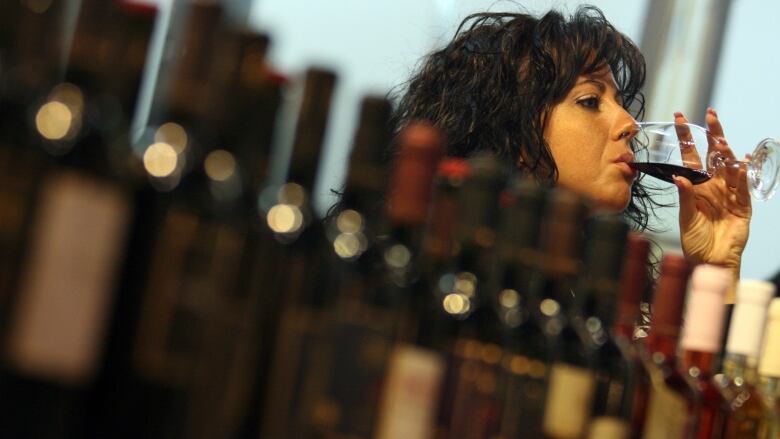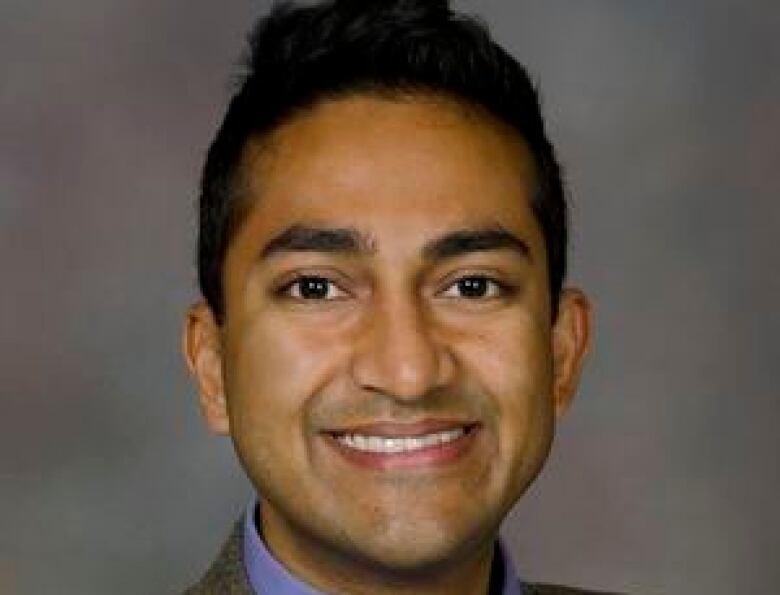University of Twitter? Scientists give impromptu lecture critiquing nutrition research
'Tweetorial' revealing scientists' frustration with recent alcohol study

This is an excerpt fromSecond Opinion, aweeklyroundup of eclectic and under-the-radar health and medical science news emailed to subscribers every Saturday morning.
If you haven't subscribed yet, you can do that byclicking here.
"Glass of wine a day could shave years off your life," one recent headline warned. "Just five alcoholic drinks a week could shorten your life," said another.
Similar headlines appeared all over the world following a study published last month in The Lancet that concluded there might be no safe level of alcohol consumption.
It was typical of themedia frenzy that seems to accompany any study showing that a common food or beverage is hazardous to our health. But some scientists squirm when they see those headlines because they don't trust the science.
The news coverage of the alcohol study was the last straw for Vinay Prasad, an Oregon oncologist and medical policy researcher who fired off thesecolourful tweets:
A couple weeks ago I said these HARSH words about a recent Lancet study & the media coverage where the authors argued more than 5-7 drinks a wk (100g/wk) was too many
I took heat
Well, I meant it then, and I mean it now.
And here is the TWEETORIAL on this paper/ nutritional epi pic.twitter.com/wooPfENRtD
—@VinayPrasadMD"I apologize to people who don't like that language," Prasad told CBC News. "But it reflects the frustration many of us feel."
Rise of the 'tweetorial'
What happened next could only occur in the age of social media.
Prasad went away and prepared a seminar complete with data slides and references. He returned to Twitter two weeks later with a tweetorial a series of tweets forming a mini-lecture to explain why he believes this type of nutritional research is deeply flawed.
"Lots of us secretly feel this way about this branch of research," he said. "It is a field with fundamental structural problems that make drawing conclusions from it incredibly unreliable."
Prasad's tweetorial critiqued a specific area of science called nutritional epidemiology.People fill out questionnaires reporting what they eat and drink and then researchers analyze the data searching for links with long-term health outcomes.
The studies often end up in the news under contradictory headlines suggesting coffee or red wine or some other nutrient has been found to be either healthy or deadly.
I never believe any headline that says 'X' foodstuff is associated with 'Y' outcomes in health terms. The science is almost always rubbish.-Christopher McCabe, Institute of Health Economics
"Not a week that goes by that we don't read about one of those things," Prasad said. "For those of us who follow the health news, it seems as if doctors can't get anything straight because one week coffee's good for you and the next week it's bad for you."
In Edmonton, health economist Christopher McCabe joined the Twitter classroom from his couch.
"I thought it was an excellent tweetorial," said McCabe, who tweeted that any associations that appearing in those studies should not be reported until they are specifically tested in randomized controlled trials.
"I never believe any headline that says 'X' foodstuff is associated with 'Y' outcomes in health terms. The science is almost always rubbish," he said.
'Nutritional epidemiology is a scandal'
Prasad presented slides citing research by John Ioannidis, a Stanford professor of medicine who has published a series of papers exposingweaknesses in nutritional epidemiology.
One paper chose 50 food ingredients from randomly selected cookbook recipes and found that 40 were linked to cancer in the medical literature.
"That's an insanely high amount of ingredients and that I think suggests there is an underlying bias to find causal links that don't really exist," Prasad said
"Nutritional epidemiology is a scandal," IoannidistoldCBCNews. "It should just go to the waste bin."
More carrots, fewer carrots, no carrots?
One of the biggest problems with nutritional epidemiology is that there are too many confounding variables between people in the studies.
"They would vary in age, in gender, in socioeconomic status, in their occupation, in their other habits and in their lifestyle, in a zillion things," Ioannidis said.
The hardest conclusion to accept here is that when it comes to common nutritional exposures-- tea, coffee, chocolate, alcohol-- we may have to make decisions the same way we decide how often to go to the bathroom or movies, i.e. using common sense and not bad epi
—@VinayPrasadMDThe data can be flawed if people can't remember or don't accurately record what they ate or drank. And the research also depends on people telling the truth.
People who are less healthy also behave differently. They might stop drinking, for example. In the Lancet study the data showed that the non-drinkers or former drinkers had a higher risk of heart disease and death than the heaviest drinkers, a fact pointed out in an accompanying commentary.
"It's complete chaos," Ioannidis said. "What it ends up being is that you get things published that are what the investigators, the reviewers and the editors want to see."
In his own research, Ioannidis demonstrated that Vitamin Ecould be shown to be life extending or life shortening depending on which factors were analyzed.
And the studies failing to find any health risk usually don't get published.

"The journals have a bias against boring null results. And so provocative things filter through these very human biases," Prasad said.
His tweetorial offered this advice:
"The hardest conclusion to accept here is that when it comes to common nutritional exposures tea, coffee, chocolate, alcoholwe may have to make decisions the same way we decide how often to go to the bathroom or movies, i.e. using common sense and not bad epi[epidemiology]."
After watching his tweets be retweeted hundreds of times Prasad said he now understands why the media embraces this research. "Look how much attention it gets."
But should the media ignore these studies and stop reporting on them?
"Yes, I think you should," Ioannidis said.
University of Twitter
Prasad's use of the tweetorialis part of an evolving form of academic debate that happens in real time in bite-sized arguments of 280 characters.
"It really does allow you to take people through, like auditing a class that I would teach," Prasad said.
The first page of his tweetorial attracted 197,000 views meaninghe reached many more people than could ever be accommodated in a university lecture hall.
To read the entireSecond Opinionnewsletter every Saturday morning,subscribe.












_(720p).jpg)


 OFFICIAL HD MUSIC VIDEO.jpg)
.jpg)



























































































